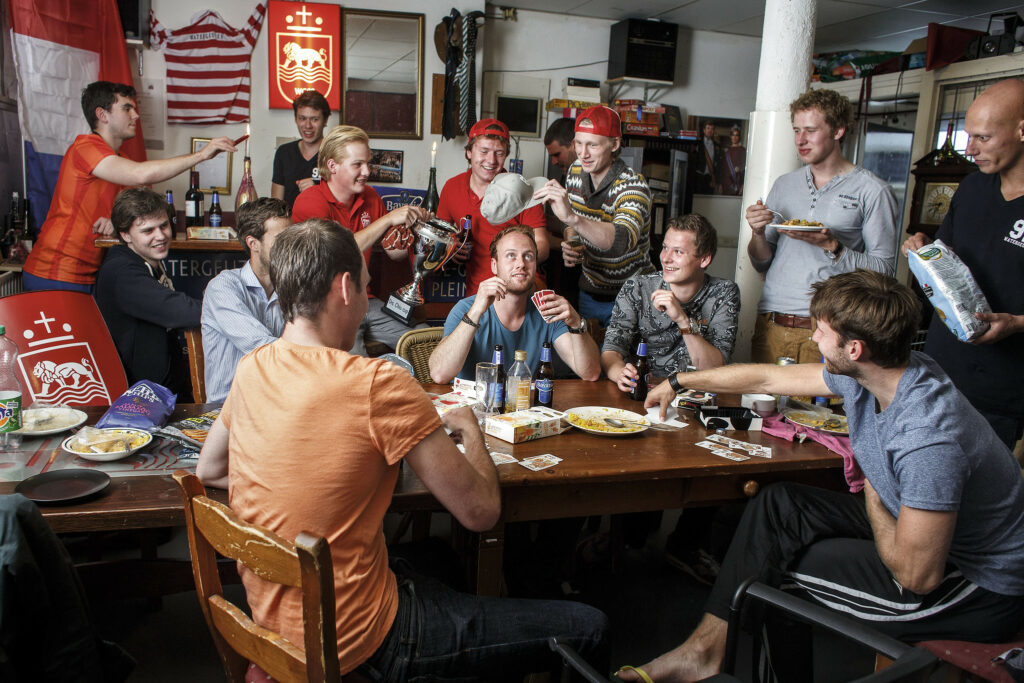Number of members of Tilburg student associations remains steady
Student associations across the Netherlands are under pressure due to the looming prospect of a long-term study penalty and the housing shortage. However, associations in Tilburg have once again managed to attract new members this academic year. Vidar is even growing.

New students have once again found their way to student associations this year. At Plato, there is a slight decline, with 141 new registrations compared to 154 in 2023, yet the association still has 753 members. According to Plato’s chairman, Stan te Hoonte, the fraternities are ‘already well-filled,’ and he expects that ‘year clubs will soon also have a stable or slightly increasing number of members.’
At Olof, almost nothing has changed: last year, 118 new students joined, and in 2024 this number is 119. The membership count now stands at 654. However, it was tense for the student corps, as applications were initially lower than usual in the lead-up to TOP Week.
For this reason, Olof initially expected to welcome fewer new members, says chairman Sven de Rouw. ‘Thanks to effective promotional campaigns, the outcome was positive after all. First-year students may hesitate to join an association, but TOP Week might have convinced them to sign up in the end.’
At rowing association Vidar, there’s reason to celebrate. The number of registrations increased from 142 in 2023 to 180 this year, with a slight membership growth from 593 to 622. A large part of the new cohort joined out of interest in rowing, according to chairman Nayomi Latulola. She attributes this to the success of Dutch Olympic rowers last summer. ‘We’re seeing more dedicated rowers: students who are joining specifically for the sport of rowing.’
Increasing academic pressure
Despite these positive figures, the chairs of Plato, Olof, and Vidar are concerned about the potential impact of the long-term study penalty and the growing academic pressure. Fear of delays in their studies might discourage students from joining an association, fraternity, or committee.
‘The increasing academic and performance pressure could lead to lower membership numbers in the coming years,’ says De Rouw of Olof. ‘Especially with the threat of a long-term study penalty, associations may start to feel the impact. That’s why we are developing a long-term vision this year that responds to the needs of todays and future students.’
Long-term vision
Vidar and Plato are also working on such a vision. Vidar is collaborating with sports coordinators and academic advisors at Tilburg University to explore ways in which competitive rowers and active members can balance their sport, association, and studies.
At Plato, they’re already noticing the impact of rising costs and the pressure on academics and work. ‘Funding student life is already more challenging due to high inflation,’ says Stan te Hoonte. ‘With the threat of a long-term study penalty, it will be even more difficult. That’s why we’re working on a long-term vision to address this obstacle.’






